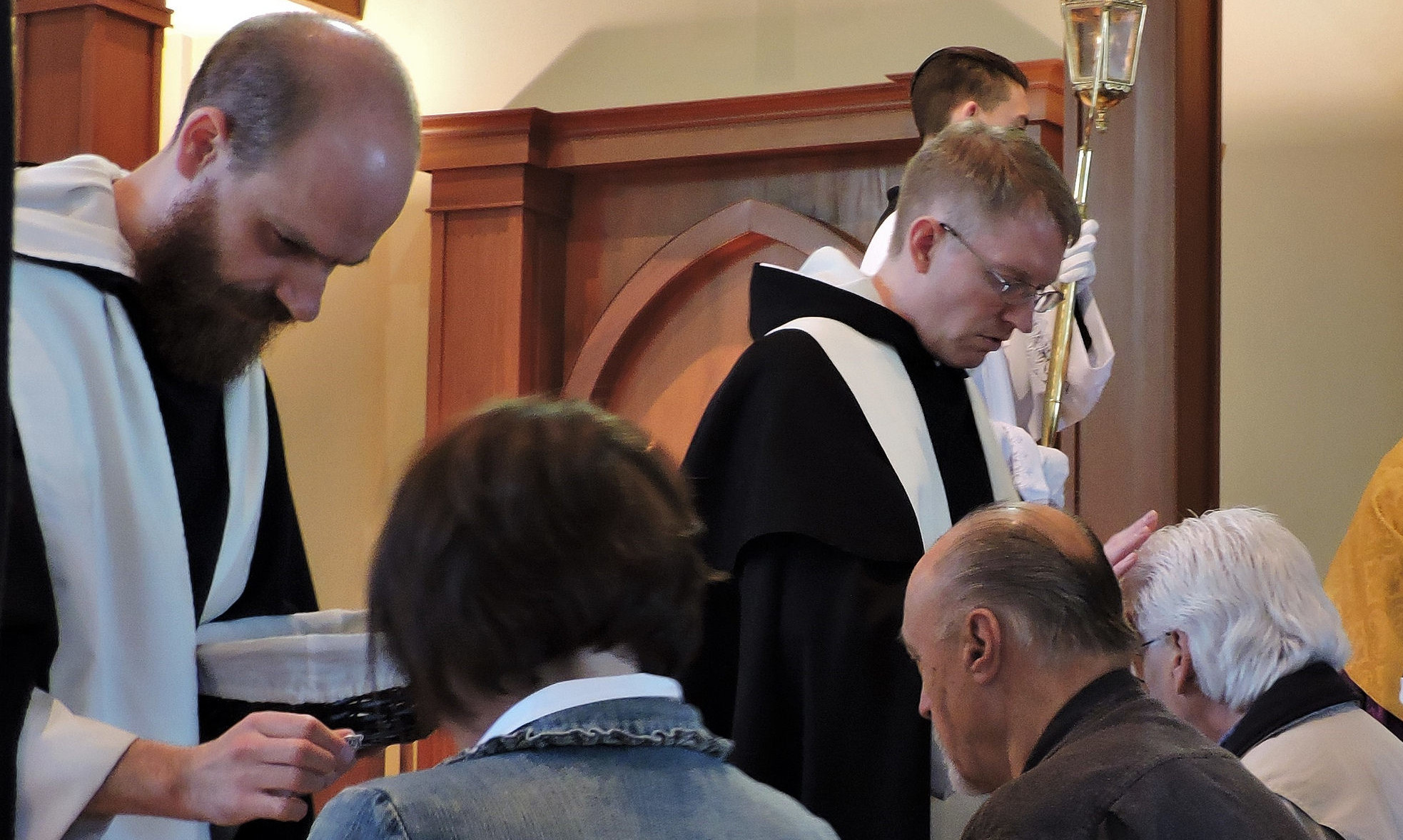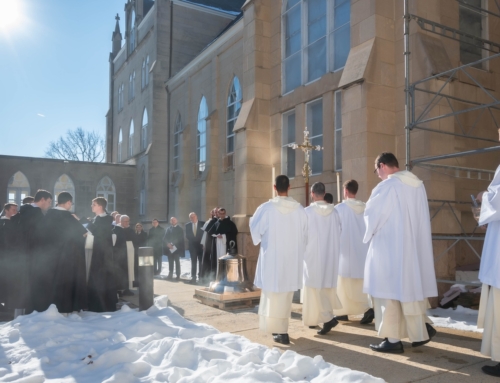“What do you seek?”
“God’s mercy and yours.”
This simple dialogue takes place as men preparing to make vows in the Order of Preachers lie prostrate in the shape of a cross and publicly acknowledge their utter dependence on God and his loving plan. What a striking admission! And unlike the occasion in which a child finds himself pinned down on the living room rug by an older brother or cousin, here surrender brings no shame! Even if this scene comes and goes quickly in the liturgy, it points to the foundation of our receiving and living the Good News of Jesus: God’s mercy.
Mercy is a perduring and essential element in Dominican “spirituality.” It is true that every form of religious life involves a humble reorientation in accord with the Gospel or conversatio apostolica. Yet the Dominican way of life achieves this in an excellent way by involving a continuous, passive and active encounter with God’s saving action. And this exchange is still having a profound influence for Catholics in the pews today.
The first movement with mercy for Dominicans is the retreat of the novitiate. Here the friars learn to receive God’s mercy and that of their brothers in the Order. A legend from the early days of the Order illustrates the point: One night in Bologna, a very smart but not so holy cleric was caught in a storm. Spotting a small house, he hurried for shelter but was turned away by a housekeeper who identified himself as “Justice.” Justice correctly saw that the worldly beggar at the door did not measure up to what a man of the Church should be. Finding another refuge, the wanderer met a porter named “Peace.” Although Peace could not accept this frenzied man into her abode, she was good enough to refer him to her sister, “Mercy.” Meeting Mercy, the man was issued this advice: “If thou shouldst save thyself from this tempest, go to the convent of St. Nicholas, where dwell the Friars Preachers. There thou shalt find the food of doctrine, the ass of simplicity, the ox of discretion; Mary who will illuminate, Joseph who will make perfect, and Jesus who will save thee.” The nascent community of Dominicans was to be for this desperate man a “house of mercy.” There, sinful men who had no claim on God were to be accepted as patients in need. In the Dominican priory, Jesus saves those who become his brothers, seeking growth and knowledge through Him and under the refuge of the Holy Family.
Next, to the extent they learn to receive mercy, Dominicans become conduits of God’s mercy through their preaching. “The holy preaching” of the friars was originally symbolized by the image of Jesus, the Lamb of God (see Jn 1:21; Rev 5). According to the Scriptures, the sacrificed Christ fulfills what was foreshadowed by the victim of the Jewish Passover; Christ’s blood applied through Christian Baptism had the power to save from death and liberate a new people for God’s worship. As members of this new people, Dominicans are specially commissioned by the Church to speak of God’s mercy to others. Like the demoniac cured by Jesus, these men, like everyone else, once helplessly roamed about in the misery of sin, until they met Christ. At the command of His voice, their lives began to be restored. Now he sends them on a mission: “Go home to your friends, and tell them how much the Lord has done for you, and how he has had mercy on you” (Mk 5:19). Like St. Dominic, friars who personally live the mystery of God’s mercy lose the capacity to refuse a person in need. They know too well what it is to be utterly dependent on God for any meaningful existence. And they realize that by communicating God’s mercy, they will be able to continually receive it themselves (see Mt 5:7).
In this Year of Mercy, Dominicans are preaching the healing power of God that is so essential to anyone’s living of the Gospel. They are also training student friars to do the same. Twenty-two American Dominican priests were recently commissioned by Pope Francis as “Missionaries of Mercy.” Student brothers have had the opportunity to join their priest-brothers on the road in the work of parish missions and by giving talks in various settings. In one such instance, at St. Mark’s “Mission of Mercy” in Huntersville, NC, Dominican priests and brothers brought their experience living God’s mercy to the lives of thousands in the parish. Through the graces offered through the Mass, preached holy hours, and extended access to the Sacrament of Reconciliation, families came to seek healing from many deep and hidden wounds. Encouraged to bring their sins and struggles into the healing light of grace, families were powerfully affected by God’s blessing. No doubt, their examples of renewed devotion to God and one another will inspire countless others to find the Source of their healing. “Houses of mercy” are for everyone.
✠
Image: Amy Burger, Dominican priests offer blessings at St. Mark’s Parish in Huntersville, NC







